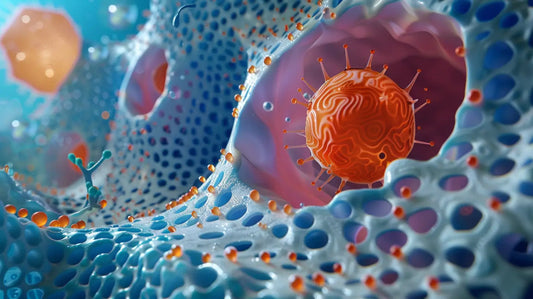The History of Hydrogen: From Elemental Discovery to Medical Marvel
UpdatedOur Commitment to Accuracy and Objectivity
Ocemida is committed to delivering reliable and unbiased information. Our editorial team, comprised of experienced editors and medical experts, meticulously reviews every article and guide to ensure the content is accurate, up-to-date, and free from bias.
Rigorous Fact-Checking Process
To uphold the highest standards of accuracy, we adhere to the following fact-checking guidelines:
Trusted Sources: We only cite reputable sources, such as peer-reviewed journals, government reports, academic and medical associations, and interviews with credentialed healthcare professionals.
Evidence-Based: All scientific claims and data are supported by at least one credible source. Each article includes a comprehensive bibliography with full citations and links to the original sources.
Internal Linking: While we may include internal links to other relevant Ocemida pages for better navigation, these links are never used as primary sources for scientific information.
Expert Review: A member of our medical and scientific expert team provides a final review of the content and cited sources for all articles and product reviews related to medical and health topics.
By following these rigorous standards, Ocemida strives to provide readers with reliable and informative content.
Share with a friend
The history of hydrogen is a fascinating journey that takes us from its discovery as an elemental gas to its current application in the field of medicine.
The story of hydrogen starts almost half a millennium ago and continues to be written today as researchers explore its vast potential.
Early Discoveries: The Unintentional Unveiling of Hydrogen
In the early 16th century, Philippus Aureolus Paracelsus, a Swiss physician and alchemist, made an inadvertent discovery of hydrogen during an experiment involving acid and metal. He observed a peculiar flammable gas as a byproduct, which was nothing like he'd ever seen before.
Fast forward to the mid-18th century, the British philosopher and scientist, Henry Cavendish, officially distinguished this mysterious gas as flammable air that forms water upon combustion. However, it wasn't until 1783 that this gas was given its official name. Antoine Lavoisier, often referred to as the 'father of modern chemistry,' introduced the term “hydrogene.” Derived from the Greek words "hydro" meaning water and "gene" meaning to create or form, hydrogen essentially means "water-forming."
Hydrogen's Link to Medicine
However, it wasn't until the late 19th century that the link between hydrogen and medicine began to be explored. In 1888, the Annals of Surgery made mention of Dr. Nicolas Senn's work, who was using H2 (hydrogen gas) for intestinal applications. This was one of the first recorded instances of hydrogen's application in medicine.
Hydrogen in Deep-Sea Diving
Hydrogen's application extended beyond medicine in the mid-20th century. In 1943, Arne Zetterstrom, a Swedish engineer, first used hydrogen gas for deep-sea diving. The U.S. Navy adopted this approach in the 1960s, using a hydrogen gas mixture known as Hydreliox to mitigate decompression sickness. The Navy's usage also demonstrated the high safety profile of hydrogen.
21st Century Medical Breakthroughs
The turn of the century brought about an increased interest in the medical application of hydrogen. In 2007, a groundbreaking article published in Nature Medicine explained how H2 works to selectively neutralize cytotoxic oxygen radicals, or more commonly known as the hydroxyl radical. This breakthrough sparked a surge in hydrogen research, leading to over 600 published studies and reviews about its potential medicinal use.
Hydrogen in Asia
Countries in Asia, such as Japan, China, and Korea, rapidly embraced this new medical marvel. Numerous clinics started offering hydrogen therapy for patients with chronic diseases, seeing remarkable results. In the U.S., hydrogen has primarily been used as a supplement, but research indicates a promising future for its medical applications.
Current Applications and Future Prospects
Today, the application of hydrogen in medicine is continuously expanding. Hydrogen inhalation was approved as an advanced medical treatment for Post-Cardiac Arrest Syndrome (PCAS) by the Japanese Ministry of Health, Labour and Welfare in 2016. Various organizations have also been established to regulate and educate about hydrogen's therapeutic use, such as the Molecular Hydrogen Institute and the International Hydrogen Standards Association.
Conclusion
The story of hydrogen is far from over. With more than 1500 scientific studies on hydrogen as a medical gas and a rapidly growing therapeutic hydrogen industry worldwide, the future is bright for this elemental gas. As research continues, hydrogen’s potential to treat a variety of chronic diseases and conditions becomes increasingly apparent, making it not just an elemental gas, but a true medical marvel.
Table of Contents










































